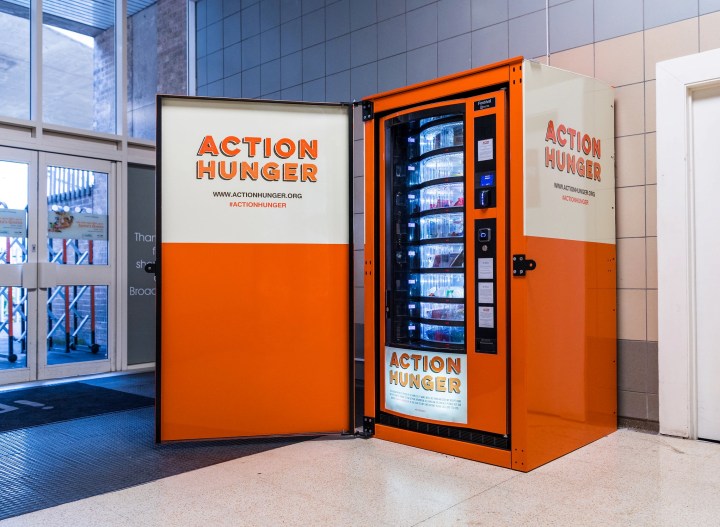
A charity in the United Kingdom is trying to do exactly that by testing special vending machines that dispense essential items like water, food, and clothing to people with nowhere to go at night. The free-to-use service is the work of Nottingham-based Action Hunger.
“We’ve developed vending machines that permit 24/7 access to basic necessities, including water, fresh fruit, energy bars and sandwiches, and socks, gloves, sanitary towels, toothbrush and toothpaste combination packs, and foil blankets,” Action Hunger founder Huzaifah Khaled told Digital Trends. “Access to the machines is exclusively permitted to those in need, and items can only be vended with the use of a special key card that Action Hunger issues. The key cards are disseminated by our partner organizations in each city, which tend to be homeless shelters and local outreach centers, as they have an exhaustive and in-depth knowledge of the local landscape.”
These key cards can be used to get up to three items per day, a number that Action Hunger hopes will enable people to get some help, without becoming too reliant on the vending machines. The non-perishable contents of the vending machine come from donations, while most of the fresh food is being supplied by redistribution organizations. In order to keep the key cards active, individuals must check in with their regular homeless shelter on a weekly basis.
“I conceived of the idea after being struck by the rising homeless population across the U.K.,” Khaled continued. “It’s a terribly sad state of affairs, which inspired me to think of a solution that would contribute to alleviating the stresses of being homeless, and encourage regular contact with shelters, which is crucial to ending homelessness. I’ve spent the last year working closely with homelessness services to develop my idea into an organization.”
At present, the first machine is being tested in Nottingham, with a plan to expand to other major cities including Manchester, London, Birmingham, and Brighton next. “We’ll be installing machines in the United States from February 2018,” Khaled said. “New York will receive the first machine, and Los Angeles, San Francisco, and Seattle will follow. We’ve had a deluge of interest from many cities across America, and we’re working hard to reach as many people as possible. We’re also exploring locations across wider Europe.”


